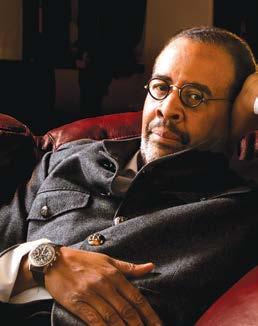






I








I
CCBA Officers
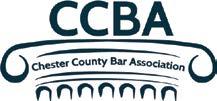
Brian L. Nagle, President
Donald B. Lynn Jr., Vice President
James Boyle, Treasure
Catherine H. Voit, Secretary
New Matter Committee
Maria Janoski, Editor
Rami Bishay
Mark Blank, Jr.
Ryan Buchanan
Charles T. DeTulleo
Jennifer Fink
Andrew Lehr
Shannon McDonald
John McKenna
Kim Denise Morton
Mary Wade Myers
Sara Planthaber
Karyn L. Seace
Bill Wilson
CCBA Staff

Greg Nardi Executive Director
Melissa Willson Communications, Events, and Marketing Manager
The Chester County Bar Association’s quarterly publication, New Matter, has been provided to Bar Association members for four decades. A valuable aspect of CCBA’s membership, New Matter aims to provide our members with information pertaining to current issues facing the practice of law, historic legal issues, continuing legal education opportunities, Chester County Bar Association activities, programs, meetings, functions, practice tips, procedures for attorneys, and items of personal interest to our membership.
The opinions expressed in this material are for general information only and are not intended to provide specific legal or other advice or recommendations for any individuals. The placement of paid advertisements does not imply endorsement by the Chester County Bar Association.
All rights reserved. No portion of this publication may be reproduced electronically or in print without the expressed written permission of the publisher or editor.

President’s Dinner Honoring our 2022 CCBA President, Michelle Bernardo-Rudy, Esq. 6
A Dog Story with an Unexpected Chester County Connection ............... 8
Veterans Day 2022: A Celebration to Remember .............10
My Benefit Advisor Expanding Mental Health Benefits ......................................12
Donald Trump versus … et al.; … versus Donald Trump: The Litigious President .......................14 Commonwealth Court Weighs in About Wastewater Management .........................................16



It’s my great pleasure to provide the first of four reports coming to you from me via our award-winning New Matter. The annual meeting in December marked a momentous occasion for me personally, as the CCBA President’s Gavel passed down the line from one former President to the next, and most notably, my Father started with the gavel as it was handed off from one former President to the next. As I said that day, it’s a true honor to serve our association. We must remain steadfast in our professionalism and our support for one another as we make our contribution to maintaining our corner of the civilized society, the practice of law. Our mission to support the rule of law is as important today as it has ever been. We also must support our independent judiciary. These things must be nurtured and maintained and
never taken for granted. Former Pennsylvania Supreme Court Chief Justice Emeritus Ron Castile reminded us of this duty when he addressed our Association as keynote speaker at our Veterans Day Ceremony in November, as he shared tales from the battlefield and the courtroom.
I mentioned during our annual meeting the work we will complete this year to digitize the Bar Association’s historical documents. This was discussed further at our January BULL Session, Meet the President. Members expressed interest in developing a searchable electronic database. This will take time to develop, but we are working with that goal in mind. We also possess many photographs, and those need to be tagged in conjunction with a search tool. But in this day and age, this material should not be at risk of being lost in a fire or flood.
Finally, we welcomed our new Executive Director, Greg Nardi, who started with us in mid-January. Greg is a United States Army Veteran who served tours in Iraq and Afghanistan during his 22 years. Greg came to us from his former post as Executive Director of the Bucks County Bar Association. I have been blown away by the number of Bucks County Bar Association members who have written to me or pulled me aside at events to express what an outstanding job he did there and how lucky we are to have him. Greg lives in Malvern with his wife and children, so his job here allows him to work in the community where he lives. In a few short weeks, I can already tell he will be an excellent asset to the CCBA.
James C. Schwartzman, Esq.• Judge, Court of Judicial Discipline
• Former Chairman, Judicial Conduct Board of Pennsylvania
• Former Chairman, Disciplinary Board of the Supreme Court of Pennsylvania
• Former Chairman, Continuing Legal Education Board of the Supreme Court of Pennsylvania
• Former Chairman, Supreme Court of Pennsylvania Interest on Lawyers Trust Account Board
• Former Federal Prosecutor
• Selected by his peers as one of the top 100 Super Lawyers in PA and the top 100 Super Lawyers in Philadelphia

• Named by his peers as Best Lawyers in America 2022 and 2015 Philadelphia “Lawyer of the Year” Ethics



On a crisp night in January hundreds of members of the CCBA gathered to celebrate the 2022 President, Michelle Bernardo-Rudy. Michelle spent 2022 in private practice and in 2023, is growing into a new role at the Court of Common Pleas, as Family Court Administrator. I had the pleasure of sharing an office wall with Michelle this past year, so it seemed right that I do the write up on her President’s Dinner. I hoped to channel one of those gossip columns but I’m afraid I didn’t take enough notes and as we all know, this old lawyer brain is just not as quick as it used to be. Perhaps it’s better if I refrain from name-dropping anyway.
The Loch Arie Mansion was the perfect timeless backdrop chock full of Chester County History. Pulling up to the mansion all alight from the ground floor up, the tower was a stunning arrival. For most, this was their first time being in the new space, and it was wonderful. There was no sign of this stately renovated mansion ever being the home of any illicit biker gang activity! The Ballroom was roomy enough for all of the guests and the tables, as well as a sizable dance floor. The DJ was excellent as well. Unfortunately for us, the bar line was not insignificant, but the beverages were quick enough to obtain. Overwhelmingly the review on the location was positive, not the least because of the easy location for most Chester County practitioners.

This event marked the first of our new CCBA executive director Greg Nardi, and there was only light, just in fun, booing of our former CCBA executive director. The PBA surely couldn’t hear it. Greg handled the evening well, ensuring that those who made speeches and got awards

had an attentive audience and the right plaque, as well as ensured that the photographer got the right pictures.
Fêted by her friends, family and the who’s who of the Bar Association, Michelle Bernardo-Rudy (“Hurricane” to her friends) looked stunning in a floor length emerald gown which, as any good formal gown does, had pockets for her speech. Her sons teared up at the loving message she sent to them and surely were not embarrassed as teens and preteens tend to be with displays of emotion from their parents. During the video portion of the event we learned that Michelle is just as good a person as we all believe! Not one of her friends had anything bad to say about her, and she has been overwhelmingly liked at every workplace. Seriously, an entire table from Fox Rothschild told me that, after all insisting on being photographed with Michelle.
We celebrated with the Judges of the Court of Common Pleas, many of whom were in attendance. Honorable President Judge John Hall gave an acceptance speech for the Board of Director’s Award, which actually went





to Honorable Judge Bortner, who could not attend. Julie Manser was awarded the John F. McKenna Access to Justice Award, and Cathy Voit graciously accepted it on her behalf. The Judge Katherine B.L. Platt Service Award went to the hard-working Elizabeth Srinivasan. The Honorable Juan R. Sanchez Pro Bono Award went to me. The Pennsylvania Bar Association also tagged onto those awards for service, doubling the number of things we need to hang on our walls. Finally, the President’s Award went to Helen Mountain. And for our 50-year members, the Bar Association gifted them David Katz prints – and one rocking chair!
In all seriousness, this was an excellent event. This is a fun event every year and it is so nice to have the timehonored tradition of the awards and ceremony and have the personalization of each Bar Association president to make it unforgettable each year!


Afew years ago, my wife and I got to take care of my son’s little Staffordshire Terrier for a few months, and now I love that kind of dog. So, the last time I was at Gettysburg, I noticed what appeared to be a bronze Staffordshire at the base of the monument to the 11th Pennsylvania Infantry on Cemetery Ridge. I thought that a strange place to find a little dog, so I looked it up. In case you did not know, you can find a lot of neat stuff on the internet. I found a story worth telling.
The little dog was named Sallie Ann Jarrett. She was a brindlecolored puppy, and was given to one of the younger officers of the 11th while they were in training in, of course, West Chester, in 1862. She was a gift from a young woman the lieutenant was seeing, whose name was Sallie Ann something or other. Jarrett was the name of the original regimental commander, and that is about all either of them have to do with the story. I wasn’t expecting that local connection when I started my surfing. That also isn’t the main reason I decided to take the time writing this.
The dog hung around the regiment, and followed its new commander’s horse while they marched through the ensuing campaigns until nearly the end of the Civil War. Sallie did not shrink from combat, although she did not understand all of it. She would snap at bullets when they hit the ground around her, apparently thinking they were some sort of fast-moving bug. She was wounded in the neck at Spotsylvania Courthouse. Eventually, her insistence on being with the guys caught up with
her, and she was killed at Hatcher’s Run on February 6, 1865. With the battle still ongoing, three soldiers of the 11th exposed themselves to fire in order to scoop out a shallow grave for Sallie, rather than just leave her there on the field. That was odd. If you know soldiers, you are aware that they can be a sentimental lot, but risking a Minnie ball in the forehead is extraordinary respect for a dead dog. More than that, those same soldiers, and the others of the regiment, made sure their monument had that little bronze statue at
the base. You may wonder why they would go to such lengths.







On the first day of the Battle of Gettysburg, the 11th Pennsylvania took up positions on Oak Ridge, just west of the town, to delay the enemy until reinforcements could arrive and secure the key positions extending to the south. They withdrew, leaving casualties behind. After the withdrawal, Sallie was missing in action, and no one expected to see her again. She did not reappear during the next two days, while Little Round Top, Pickett’s charge and all the rest went on. Yes, the same folks who risked death to bury Sallie nineteen months later, withdrew leaving both her and some of their comrades behind. Why the difference?
As we know because the country survived, the 11th was on the winning side of the battle. When the army reoccupied Oak Ridge afterwards, there was Sallie. She was guarding the dead of the 11th Pennsylvania. She wouldn’t let anyone not from the regiment near them.
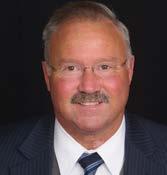

Despite the barrage of rain, the Bar Association and community came together on November 11, 2022, for a widely attended and patriotic celebration of Veterans Day 2022. The event was originally planned to take place outside the historic courthouse with a military flyover, but since the weather forecast called for significant rain, the celebration was moved indoors to the Chester County History Center. Fortunately, the rain did not dampen the success of the event.
With well over 100 people in attendance, including many veterans and dignitaries, the sounds of patriotic music performed by an ensemble of the West Chester University Marching Band permeated the patriotically decorated auditorium. Military color guards, Revolutionary War Reenactors and uniformed service members all participated in the ceremony. West Chester University President Christopher Fiorentino, who attended the celebration with his wife Susan, praised the event and was deeply inspired by the service and sacrifices our veterans have given to our country. Some 20 veteran bar association members in
attendance were given military baseball hats reflecting their service to the Army, Marine Corps, Navy and Air Force, and their names were announced with applause during the ceremony.
The Guest of Honor was Ron Castille, Chief Justice Emeritus of the Pennsylvania Supreme Court. His remarks were inspiring as he recounted his experiences as a Marine in Vietnam, where he sustained enemy fire leading to the amputation of his leg. His riveting recants of his life experiences, where he overcame adversities to later become the Philadelphia District Attorney and Chief Justice of the Pennsylvania Supreme Court, touched the hearts of all, including the University band students who were clearly awed by his remarks.
Magisterial District Judge Gregory Hines eloquently sang songs including God Bless America, which was so moving that everyone joined in the singing. The event concluded with Revolutionary War Reenactors performing a solemn tribute to our fallen veterans, which was followed by a musket salute. While the Reenactors went through the routine of loading their muskets with black powder and balls in front of the crowd, when it came time to “Ready, aim, fire,” instead of pulling their triggers (since we were indoors), a West Chester University band member with perfect timing hit his snare drum to make the loud bang of the muskets, even causing some people to be startled – thinking the sound was real! Thereafter, everyone adjourned to the rear of the auditorium to enjoy great food donated by Limoncello Ristorante, which was accompanied by spirits and warm company.
I would be remiss if I did not humbly recognize the many Bar Association law firms who so generously sponsored the Veterans Day Celebration. While typically our Bar Association events are sponsored by outside businesses, the sponsors for this event were truly special because almost all of the sponsors were law firms of our great Bar Association.
Without their generosity, the 2022 Veterans Day Celebration would not have been one of the best Veterans Day celebrations in the history of our Bar Association. Here they are:


Red Sponsors ($500): Buckley Brion McGuire & Morris LLP
Robert Frame, Esq. (Coldwell Banker Realty)
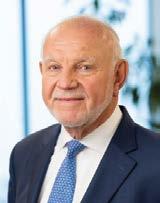
Fox Rothschild LLP
Gawthrop Greenwood, PC
Goldberg, Goldberg & Maloney
Lamb McErlane PC
Law Offices of Jamie W. Goncharoff
MacElree Harvey, LTD
Swope Lees Commercial Real Estate, LLC
Steven L. Sugarman & Associates
Unruh Turner Burke & Frees PC
White Sponsor ($300): Skinner Law Firm, LLC
Blue Sponsors ($100): Chris Pielli (Chester County Recorder of Deeds)
Laverty, Abele & Russell, LLC
Law Offices of David M. Melchiorre, LLC
Rover Law Group LLC
Srinivasan Law
With Great Thanks!
In the past couple of years, many employers have expanded their company’s mental health benefits as a show of support for potential jobseekers, employees and their families. The intention is to help promote employee wellbeing through better access and improved benefit levels for those feeling stressed about personal or work-life matters.
Workers seem to appreciate the efforts and are taking advantage of the services. Some of the changes business owners are making include:
• Increasing access to mental health services through methods like telehealth
• An expansion of access to in-network mental health providers
• Reduced cost sharing for mental healthcare visits
• The addition or expansion of employee assistance programs for mental health services
• Access to yoga, meditation and mindfulness sessions at the workplace or home
• Providing apps that support wellness, focusing on fitness, sleep and relaxation
By addressing issues like stress and anxiety in a more proactive fashion, employers can reduce or even eliminate costly treatment for conditions such as hypertension, diabetes and cardiac problems. The small financial investment the employer makes now can often save substantial costs in the future.
The Chester County Bar Association offers its members access to My Benefit Advisor as a solution for employee benefits, including voluntary offerings. For more information about My Benefit Advisor, visit our website at ccba.mybenefitadvisor.com or contact Christopher Sloane at (610) 684-6933.
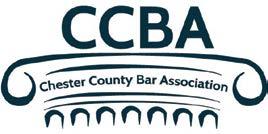

Law Firm Banking
Nota by M&T Bank offers a unique digital banking experience designed for solo and small law firms. Supported by a dedicated banking team who works specifically with attorneys and their law firms. With Nota, you can confidently manage your firm’s business accounts and client funds right within the platform using real-time bank data.

Provides valuable practice management features. Set up categories with income & expense and client matters for tracking


Nota
works with strategic partners to provide exclusive


Alright, let’s face it. We live in America in the Twenty-First Century, where and when litigation is a significant aspect of our lives, our liberty, our property and, for many, the pursuit of happiness. Litigation is an integral part of our culture. And by the time that most individuals in the United States have reached middle age, they have been involved in some sort of litigation; e.g., unemployment compensation, worker’s compensation, contract disputes, estate administration, business transactions, divorce and domestic relations, collections, creditor debtor, bankruptcy and insolvency, real estate, taxation, criminal, torts, etc. And this is particularly true for persons engaged in business, especially entrepreneurs and real estate tycoons and moguls.
Donald J. Trump (“Mr. Trump”) is no exception. But to say that the former president is litigious may, by some observers, be considered to be an understatement (perhaps the one of the year or even the century).

Throughout his adult life and up until he assumed the Presidency, Mr. Trump has had involvement in about 3,500 cases in federal and state courts and United States Bankruptcy Court.1 And since 2016, there have been a myriad of others2, including (but not limited to) his 2020 election challenges and the January 6, 2021 insurrection.
Most recently,3 in Trump vs. United States of America, the United States Court of Appeals for the Eleventh Circuit4 reversed the District Court, the latter of which had ruled

unequivocably in favor of Mr. Trump on virtually all of the issues which had been presented to that court. Mr. Trump had brought suit against the Government in the United States District Court for the Southern District of Florida.5 On Plaintiff’s Motion For Judicial Oversight and Additional Relief, the District Court held that it had jurisdiction (albeit equitable) to enjoin the United States from using otherwise lawfully seized records it received from Mr. Trump’s Mar-a-Lago residence. In so doing, the district judge stated, in relevant part: “Pursuant to the Court’s equitable jurisdiction and its inherent supervisory authority, and mindful of the need to ensure at least the appearance of fairness and integrity under the circumstances presented [emphasis mine], Plaintiff’s Motion is GRANTED . . .” Order, Opinion, 1.
The district judge further ordered the appointment of a special master to review the property seized pursuant to the search warrant. The District Court so stated: “. . . [In] natural conjunction with that appointment . . . the Court also temporarily enjoins the Government from reviewing and using the seized materials for investigative purposes pending completion of the special master’s review or further Court order.” Id.
The Court of Appeals reversed the District Court in its entirety. The Court framed the question presented quite narrowly, as if it were an appellate brief: “This appeal requires us to consider whether the district court had jurisdiction to block the United States from using lawfully seized records in a criminal investigation. The answer is no.” Trump, CA 11th Cir., 2. In its per curiam opinion, the Court of Appeals delved into a thorough analysis as to why the District Court did not have jurisdiction. Referring to the issues that were before the District Court, the Court of Appeals initially took notice that “[these] disputes ignore one fundamental question – whether the district court had the power to hear the case: After all: ‘Federal courts are courts of limited jurisdiction. They possess only that power authorized by Constitution and statute, which is not to be expanded by judicial decree [citation omitted].’” Id. The Court proceeded with its discussion as to when a federal court can, under “exceptional” and “anomalous” circumstances, exercise equitable jurisdiction. The Court applied the four-prong test of its precedential case, Richey v. Smith, 515 F.2d 1239 (5th Cir. 1975), which detailed if and when
a federal court has equitable jurisdiction; the Court determined that Mr. Trump’s jurisdictional arguments failed on all of the four “factors”. Id., 3. After a thorough recitation of the history of the case sub judice (both factually and procedurally), the Court went forward with its reasoning and arrived at its conclusion that: “ . . . the district court lacked jurisdiction to consider plaintiff’s initial motion or to issue any orders in response to it.” Id.,10; discussion, 10-20.
In its conclusion, the Court of Appeals held that the District Court improperly exercised equitable jurisdiction; vacated the lower court’s order; and remanded with instructions for the District Court to dismiss the case in toto. It is interesting to note that the Court of Appeals, in the penultimate to its Final Order, stated that: “We cannot write a rule that allows any subject of a search warrant to block government investigations after the execution of the warrant. Nor can we write a rule that allows only former presidents to do so.” Id., Opinion, 20-21. I suggest that you (whoever and wherever you are, if you are anybody and/or anywhere) read both the opinion of the District Court and that of the Court of Appeals. The opinions, combined, are equal to an introductory chapter in a textbook on federal jurisdiction. And the Eleventh Circuit Court of Appeals, in its per curiam opinion, all but scolds the trial judge (United States District Judge Aileen M. Cannon), the plaintiff (Mr. Trump) and the latter’s legal team. As of this writing, no cert. petition, or other form of appeal, has been lodged. Nor, to my knowledge, have any other lawsuits (frivolous or otherwise) by or against the former president been commenced. But is there more litigation to come? Well, we shall “wait-and-see,” as we are, for all intents and purposes, in a wait-and-see jurisdiction (as in the rule against perpetuities). At least for now, however, former President Trump is at liberty to lead a life of blissful fulfillment.
5 Donald J. Trump v. United States of America, U.S.D.C. Southern District of Florida, 22cv-81294-AMC. This was a far cry from Mr. Trump’s first legal encounter with the Government. In 1988, the United States District Court for the District of Columbia entered judgment in favor of the United States and against Mr. Trump, and ordered the latter to pay a civil penalty in the amount of $750,000 pursuant to Section 7A(g)(1) of the Clayton Act. United States of America v. Donald J. Trump, Civ. Action 88-0020, U.S.D.C., D. Columbia, 12 April, 1988.

 By Shannon K. McDonald, Esquire
By Shannon K. McDonald, Esquire
Sometimes you hear about interesting decisions from the most unlikely sources. Well, maybe a news source isn’t unlikely to you, but I didn’t expect to be reading a summary of a Commonwealth Court opinion on Hello, West Chester. 1 After reading her description, this non-precedential opinion deciding West Chester University and West Chester Borough’s cross motions for summary relief warranted more review.
Let’s begin with the Stream Protection Fee, the “fee” at issue in this case. For those who are not West Chester Borough residents or property owners, the stream protection fee is a charge levied by the Borough on property owners and raises funds to construct, operate and maintain stormwater management facilities. The theory is that the charge is assessed on developed properties that alter the impervious surface of the land, and thus contribute to the need for stormwater management. The charge is assessed based on the amount of impervious surface the property owner has, and the charge is assessed to every property owner in the Borough.
West Chester University, in a title held by Pennsylvania through the Pennsylvania State System of Higher Education (PSSHE), apparently owns approximately 32 acres of Borough land, an area called North Campus. This 32 acres is 8% of the impervious surface in the Borough. So, obviously, the Borough, after calculating the charge at “roughly” $132,000.00, sent a bill in 2017, 2018, and 2019. The University, as a non-profit not subject to taxation, declined to pay.
At issue here is whether the Stream Protection Fee is a fee, or a tax. The Borough contended that they were calculating a fee to protect the public welfare based on the direct relationship of public health to the problems of flooding, the health and quality of a watershed and tributaries to waterways in an area. Therefore that the charge is a fee for service (the service is stormwater management) and that the charge is reasonably proportionate to the impervious surface on a parcel of land. The University contends that the fee is not merely a charge, but instead a tax, because the benefit funded is a general benefit, and that the proportionality of impervious surface is inappropriate as it is not proportionate to the cost of running the stormwater system. The University further asserted that they manage their own stormwater and runoff.
The Commonwealth Court extensively reviewed the caselaw on what defines a tax versus a fee. Luckily for us,
Continued on page 18

Continued from page 16
there is a lot of case law on it. The classic tax is “imposed by a legislature upon many, or all citizens[. It] . . . raises money, [is] contributed to a general fund, and [is] spent for the benefit of the entire community.” San Juan Cellular Tel[.] Co. v. Pub[.] Serv[.] Comm[’]n of Puerto Rico, 967 F.2d 683 (1st Cir. 1992). A tax is an “enforced contribution to provide for the support of government.”



United States v. LaFranca, 282 U.S. 568 . . . (1931). Where a charge is imposed by a state or municipality not in its capacity as a sovereign but rather under a voluntary, contractual relationship, it has been held not to be a tax.

United States v. City of Columbia, M[o.], 914 F.2d 151, 156 (8th Cir.1990). A “fee” is paid to a public agency for bestowing a benefit which is not shared by the general members of the community and is paid by choice. City of Vanceburg, K[y.] v. Fed[.] Energy Regul[.] Comm[’] n, 571 F.2d 630, 644 (D.C. Cir.1977).” p. 12 (block quotes excluded for simplicity of the article).
Basically, sums up the Court, “a charge is a tax rather than a fee for service if it is not reasonably proportional to the value or benefit received in return for its payment.” p.16. The Court came to the conclusion that the stormwater charge provided a benefit to the general public and not an individualized service to particular customers (landowners, in this case). The Court also concluded that the calculation of the charge based on impervious surface area is not derived by benefits to the payor, but instead calculated based on the burden that property owner has placed on the stormwater system. p.17. Further, the charge was determined not to be an assessment because it is not subsidizing a project of limited duration, but instead an “on-going series of evolving tasks and projects.” p.19.
The Commonwealth Court found that the Stormwater Management Fee was in fact a tax. The Commonwealth Court found that the University is immune from taxation because the state and its agencies are immune from taxation absent any statutory authority. You can read the whole opinion for yourself at the Commonwealth Court’s site, and the docket number is 260 M.D.A. 2018. The decision was entered on January 4, 2023, so we’ll know if there is any appeal from this decision by the time this article is published.





and development assignments. My final assignment in the Army was with the ROTC detachment at Temple University which is how my family and I ended up in Chester County.
As my first year as the Executive Director begins, I am looking forward to working with a great staff, assisting our members, and helping to put together some outstanding events and services. It’s an honor to be able to join an organization with a rich history and proven record of success and I am eager to do my part to continue this tradition of excellence. I pass my thanks to Matt Holliday for his years of service to the CCBA and for the time and effort he provided to me to enable a smooth transition.
By the time you read this, we will have celebrated our Annual President’s Dinner and passed the gavel from Michelle Bernardo-Rudy to Brian Nagle. We are looking forward to Spring Bench Bar on April 6, 2023, the Key Gala on May 4, 2023, and The Annual Bar Sail on June 15, 2023. In addition to these featured events, our sections and committees have a full schedule of CLEs, meetings, and happy hours.
As the new guy on the block, I was asked to share a little about my background. Before spending the last four-and-a-half years with the Bucks County Bar Association, I spent 22 years in the U.S. Army. As an armor officer, I had the privilege of serving in a variety of operational assignments from platoon to company to battalion level with service in the U.S., Korea, Iraq, and Afghanistan. Additionally, I had the opportunity to serve in some strategic planning and technology research
My wife, Jennifer, and I have four children. Jon is a new Infantry Lieutenant in the Army, Lauren is a junior nursing student at Duquesne University, Jake is a freshman at the University of Alabama, and Claire is a sophomore at Great Valley High School. Outside of work and family, I work with some local Scouting organizations in Malvern – Troop 7 and Troop 77 (a Scout troop for young men with autism and other disabilities). I also work with the Malvern Memorial Cabin Foundation that helps maintain the cabin and property (corner of Monument Avenue and Sugartown Road) for use by area youth organizations. I am also involved with the Philly Chapter of the Association of the United States Army and the FourBlock program which assists Veterans in their career transition as they reestablish their careers after serving.
I look forward to meeting our members and community partners in the coming weeks and months. The staff and I are committed to serving our members, the community, and our business partners. Please email, call, or stop in to ask a question, grab some coffee, or just say hello.
The CCBA has been here for the lawyers of Chester County through over two-dozen Presidents, two World Wars, and two global pandemics. Our tradition of service to our members and the community remains the same. I am proud to do my part to continue the tradition of service to our over-1100 members.


As we kick off 2023, Goldberg, Goldberg & Maloney is proud to announce that BASIL JOY is now a partner at the firm. A zealous and compassionate advocate, Basil has brought home significant recoveries for clients impacted by crime and personal injury. He is also committed to improving our community, serving as a leader in various charitable organizations in the spaces of mental health, homelessness and breast cancer. With Basil’s help, our team recovered over $18.1 million for our clients in 2022. We look forward to serving more people in the year ahead.
Barley Snyder is pleased to announce that partner and Intellectual Property Practice Group Chair SALVATORE ANASTASI has been elected as Second Vice President of the American Intellectual Property Law Association (AIPLA). He was elected to this role at AIPLA’s annual meeting in October.




Barley Snyder congratulates JOSEPH R. FALCON, III, partner and intellectual property attorney, for acquiring leadership roles with the American Bar Association Section of Intellectual Property Law (ABA-IPL) for the 2022-2023 bar year. Falcon has been recently reappointed as Chair of the Patent Litigation Committee and will also serve on the America Invents Act (AIA) Task Force and Patent Section 101 Task Force.
Chester County Commissioners have named COLLEEN FRENS as County Solicitor. Frens served as Acting Solicitor after the appointment of former Solicitor Nicole Forzato to the bench of the Chester County Court of Common Pleas last summer.


Effective January 3, 2023, attorneys HOLLY L. SETZLER and JAMES D. DOYLE are joining Gawthrop Greenwood’s team of attorneys at their law offices in historic downtown West Chester, PA.

 By John R. Embick, Esquire
John R. Embick, PLLC Chair of the CCBA Environmental Law Section
By John R. Embick, Esquire
John R. Embick, PLLC Chair of the CCBA Environmental Law Section

On November 8, 2022, the voters of Westtown Township passed the following referendum question:
“Do you favor the imposition of an increase in the earned income tax at a rate not to exceed eight one hundredths (8/100th) of one percent (0.08%) and an increase in the real property tax at a rate not to exceed 0.42 mills ($0.42 per $1,000 assessed valuation) by the Township of Westtown to be used to purchase interest in real property for purposes of securing open space benefits and for transactional fees incidental to acquisitions of open space property; retire indebtedness incurred in acquiring open space; and the expenditure of funds for any purpose relating to the acquisition, planning for acquisition, preservation, improvement and maintenance of open space or for an open space benefits?”
The specific language of the referendum is specified by law (except for the amount of the proposed tax levy). The referendum measure asked township voters to approve or reject a tax increase for the acquisition or preservation of open space. The referendum question passed overwhelmingly. The final percentages, as reported by
Chester County Voter Services for the five Westtown Township precincts, were 68% in favor, and 32% opposed (4,202 votes in favor and 1,979 votes opposed) (see, https://pennsylvania.totalvote.com/Chester/ResultsSW. aspx?type=MUN&cid=03&map=CTY (election results updated as of 11/29/2022)).
In Westtown Precinct 5 (where Crebilly Farm, the object of an open space preservation effort is located), the vote was approximately 86% in favor, to 14% opposed. These results suggest that the referendum was strongly supported by Democrats, Republicans and Independents (exit polling rarely occurs in local elections, so we only have the numbers reported by Chester Voter Services to use as support for these assumptions).
In modern political parlance, this is usually characterized as a “landslide” victory by political observers (e.g., New York Times, Washington Post, etc.), and which has been defined as a 15% or more margin of victory (although “landslide” does not appear to have a formal metric (like those developed by ASTM International) associated with the term).
The backstory is as follows. First, I note a disclaimer: I live in Westtown Township, and participated in a political campaign which supported the passage of the open space tax referendum. This story stretches back to 2016, when a large residential housing developer obtained an interest in a 300-acre tract located at the northwest corner of U.S. Route 202 and Pa. State Route 926, known as the Crebilly Farm (“Crebilly”). Among other things,
Crebilly is part of what is known as the Brandywine Battlefield Swath, the latter being a huge area associated with military actions and engagements during the Battle of Brandywine on September 11, 1777. The evidence of such actions directly and significantly affecting Crebilly seems somewhat unclear. Nevertheless, some citizens view Crebilly as “sacred ground.”
The developer proposed to construct over 300 homes on the Crebilly site, as set forth in several land development plans. Many township residents opposed the proposed development on numerous grounds (such as adverse impacts on traffic, environment values, historical values, scenic values, etc.). The developer sought approval under the conditional use process specified by the PA Municipalities Planning Code and the local zoning code. Many nights of hearings were held before the township Planning Commission, and then the township Board of Supervisors. The first conditional use application ended in a denial, for a number of reasons, including the developer’s refusal to construct a connector road. The developer appealed and the township prevailed, in part, before Chester County Common Pleas court (“CCCCP”) (see, Toll PA XVIII, L.P. v. Westtown Township Board of Supervisors, et al., No. 2018-02620-ZB, October 1, 20189 (Judge Tunnell presiding)), and then before Commonwealth Court, the latter which reversed and affirmed, in part, and remanded to the CCCCP (see, Appeal of Toll PA XVIII, L.P., No. 1366 C.D. 2018, December 12, 2019 (unreported decision)).
Prior to the Commonwealth Court decision and remand, the developer proposed a revised development plan in a second conditional use application, and attempted to address some of the determinations made in Judge Tunnell’s earlier lower court decision. Again, many nights of hearings occurred before the Planning Commission and then the Board of Supervisors. In both conditional use applications, the Planning Commission recommended denial, but proposed many conditions for the Board of Supervisors to consider, should an approval be granted. Towards the end of the conditional use proceedings before the Board of Supervisors, the parcel owner abruptly and unexpectedly decided in 2021 not to extend the developer’s option to purchase the property. On September 8, 2021, the Board of Supervisors then promptly denied the conditional use application because the developer no longer possessed an ownership interest in the property, and therefore had no right to propose a land development plan.
After the denial of the conditional use application, a prominent land conservation organization approached

the parcel owners about a sale of Crebilly to Westtown Township. The parcel owners were open to the opportunity and an agreement of sale (“AOS”) with the township was signed in April of 2022. The township engaged Natural Lands to assist in the application process for grant funds to support the acquisition of Crebilly, and to assist in the process of informing the public about the Crebilly acquisition process, and how Crebilly might be utilized if acquired by the township.
The AOS set forth the terms of sale of approximately 200 acres outright to Westtown Township, and the negotiation of conservation easements on the remaining 100 acres (approximately) of the parcel. The purchase price was set at $20,500,00.00, and the township’s share was $7,500,000.00. The remaining fraction of the purchase price is to be paid through federal, state and county grants, as well as private contributions. At the time of this writing, $6,000,000.00 in grants from Pa. DCNR has been secured. An interesting condition in the AOS was the requirement that an open space tax referendum be placed before the township voters in the general election on November 8, 2022, and that the referendum be passed by the voters.
The open space tax referendum is one of the only state or local taxing provisions which is directly voted on by township residents (another reason to register to vote and turn out to vote!). The referendum is authorized by Act 442 of 1967, as amended, and known as the Preserving Land for Open Air Spaces Act, codified at 32 P.S. §§ 5001, et seq. (“Open Space Act”). The Open Space Act authorizes the Commonwealth of Pennsylvania and local government units thereof to preserve, acquire or hold land for open space uses. The Open Space Act further provides several local taxing options to support these activities.
After the AOS was signed, a group of interested township residents decided to form a political action committee, known as Vote Yes to Save Crebilly Farm (see the group’s website at https://www.voteyescrebilly.com/) to support passage of the referendum question. This group waged a campaign to convince township voters to approve the referendum. Over two hundred people directly and actively participated in the campaign as volunteers, contributors or campaigners, and funds were raised to support the endeavor.
Despite signing the AOS, the township, as a corporate body, decided to take a neutral role in the referendum campaign, although no provision in either the Open
Continued from page 23
Space Act or the Second Class Township Code seems to require this. The three individual township supervisors, however, took different positions. One supervisor, Richard Pomerantz, actively and publicly supported the Vote Yes to Save Crebilly campaign. Of the other two supervisors, one took a neutral role and was mostly silent during the campaign. The remaining supervisor, however, despite authorizing the execution of an AOS, actively campaigned against passage of the referendum, raising some interesting contractual, ethical, and free speech issues. Natural Lands had never before encountered this type of political division by their employers in connection with the support of an open space tax referendum and open space acquisition. Perhaps this is just another indication of the state of political polarization in the United States.
We also learned during the campaign that property used for residential homes requires more revenue (for infrastructure maintenance, schools, etc.) than is raised by the taxes generated by the residential properties themselves. Therefore, if the Crebilly property were developed for residential housing, taxes inevitably

would have to go up (see, the 2022 Cost of Community Services Report (“CoCS”) (prepared by the Brandywine Conservancy specifically for Westtown Township, and available through Natural Lands), or see, the Chester County 2019 Return on Environment study (available at the Chester County Government web site, at https://www. chesco.org/DocumentCenter/View/49747/ExecutiveSummary?bidId=)). These findings correspond to other recent CoCSs performed by the Brandywine Conservancy and others. The Brandywine Conservancy has reached the same conclusion in CoCS studies for more than 21 townships across the Commonwealth. The American Farmland Trust and others have reached identical conclusions in 80 other studies in 18 other states.
The opponents of the referendum argued that the acquisition of Crebilly was not needed, was too expensive, was not the best “deal,” was located too inconveniently for many township residents, could no longer be used for row-crop agriculture, would raise taxes, and would be used primarily by non-township residents (Thornbury Township (Chester County), Birmingham Township, East Bradford Township, and West Goshen Township are all nearby), etc. None of these arguments seemed to gain
much traction with the voters.
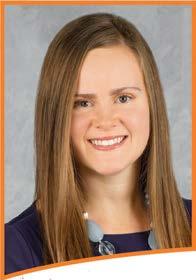

As a result of the successful passage of the referendum, the Westtown Board of Supervisors enacted an ordinance in late 2022 which levied the EIT and real estate tax at approximately 50% of the rate authorized by the voters in the referendum question. The Chairman of the Board of Supervisors explained that the Board did not feel that the full amount of the authorized tax rate was needed in 2023, given that all of the conditions of the AOS have not been met. The open space tax levy is intended, in part, to support the debt service on municipal bonds which will be offered for sale by Westtown Township.
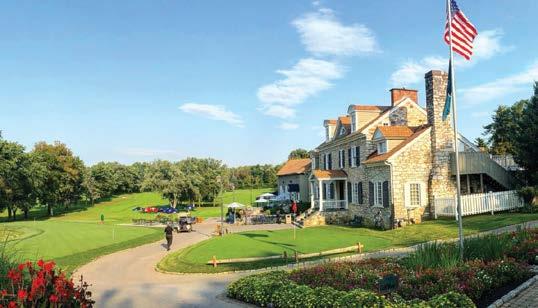
The end of this story is yet to be learned. The township must fulfill all of the conditions set forth in the AOS, and raise the necessary funds for the acquisition of Crebilly. The passage of the referendum does indicate that support for open space preservation (and specifically Crebilly) is widespread in Westtown Township.

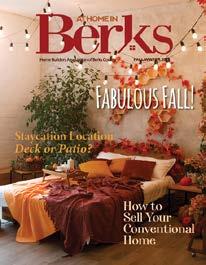



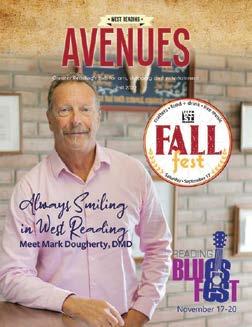


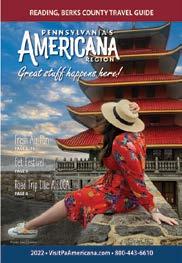
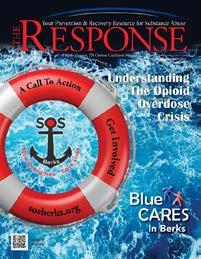
Register today: 610-692-1889
chescobar.org/LRSmembers
Each year, we receive over 3,000 calls seeking an attorney referral through our Lawyer Referral Service hotline. We have greatly expanded the advertising and marketing of this program in order to serve the citizens of Chester County, and have experienced a 40% increase in paid referrals since last year.
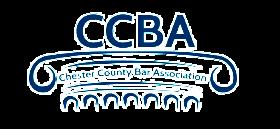
“When someone needs a lawyer, they often do not know where to turn The Lawyer Referral Service through the Chester County Bar Association is an excellent resource for the public, which in turn, makes it an excellent source of revenue for private practice attorneys Not only can participating LRS attorneys help people who find themselves in need of an experienced attorney, but they can help grow their practice by signing up for this service It is one of the many great benefits of membership in the Chester County Bar Association, and it has helped me grow my firm to what it is today ” - Michael Noone, Es quire, Noone & Borger, LLC
HOW ARE REFERRALS GIVEN?
Registered attorneys receive referrals on a rotating basis for panels of your choice, including:
Administrative Law
Business Tax Law
Civil Litigation

Criminal Law
Elder Law
Employment Law
Estate Law
Family Law
Individual Rights Liability Law
Mediation/Arbitration
Real Estate Law
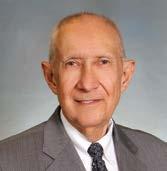
So you may wonder why this is about New York, not only the state but the largest city in the United States, New York City.
The easiest way to approach this topic is by looking at how the Second Amendment of the United States Constitution effects the ownership and all collateral issues of that ownership.
“USCS Const. Amend. 2, Right to bear arms.
A well regulated Militia, being necessary to the security of a free State, the right of the people to keep and bear Arms, shall not be infringed." (U.S. amend. 2)(Current through the ratification of the 27th Amendment on May 7, 1992).1”
Without going into a lot of history, the more recent cases involving the Unites States Supreme Court (USSC) have prompted more activity than the previous years of the court. One of the more recent cases ignited the hot topic of gun rights for citizens of the United States. In District of Columbia v. Heller, 554 U.S. 570; 128 S. Ct. 2783; 171 L. Ed. 2d 637
(2008),2 the USSC held for the appellant Heller concerning the unconstitutional denial of his second amendment right to bear arms. The District of Columbia had a law that prohibited the ownership of guns in the home of a citizen. It also mandated that a citizen could only have a gun in their home if the District approved that ownership. And then, if granted, a citizen had mandates of how the gun must be stored and not loaded in order for a citizen to lawfully possess the weapon.
The Lexis overview of the case outlines the unreasonable actions by the District of Columbia.
“Respondent, a special policeman, filed the instant action after the District refused his application to register a handgun. The Court held that the District's ban on handgun possession in the home and its prohibition against rendering any lawful firearm in the home operable for the purposes of immediate self-defense violated the Second Amendment. The Court held that the Second Amendment protected an individual’s right to possess a firearm unconnected with service in a militia and to use that firearm for traditionally lawful purposes, such as

self-defense within the home. The Court determined that the Second Amendment's prefatory clause announced a purpose but did not limit or expand the scope of the operative clause. The operative clause's text and history demonstrated that it connoted an individual right to keep and bear arms, and the Court's reading of the operative clause was consistent with the announced purpose of the prefatory clause. None of the Court’s precedents foreclosed its conclusions. The Court held that the Second Amendment right was not unlimited, and it noted that its opinion should not be taken to cast doubt on certain long-standing prohibitions related to firearms.” When the Heller decision was reached in 2008, there were only approximately 96 other decisions of the USSC concerning the second amendment. You might think that during the life of our country and the USSC from July 4, 1776, it would have had more than 96 cases. Passage of over 246 years and only 96 other cases went to the court. But the milestone of the Heller decision started a litigation hurricane of challenges to the unreasonable restrictions created by some states against the legal ownership of a firearm also known as (aka) a gun.
As many in the legal profession know, just because the USSC reaches a decision that seems clear to the public and government, the decision did no more than encourage additional actions to pass more stringent laws to make it difficult, if not impossible, for a law abiding citizen to own a gun. The term unintentional consequences comes to mind when you consider that more stringent laws were passed in order to circumvent and even predict what the USSC would do in the future. Even longstanding laws were now game.
It is important to know that at the time of the Heller decision, the USSC consisted of the following justices: “Judges: Scalia3, J., delivered the opinion of the Court, in which Roberts, C. J., and Kennedy4, Thomas, and Alito, JJ., joined. Stevens, J., filed a dissenting opinion, in which Souter, Ginsburg5, and Breyer, JJ., joined, post, p. 636. Breyer, J., filed a dissenting opinion, in which Stevens, Souter, and Ginsburg, JJ., joined, post, p. 681.’ (District of Columbia v. Heller, supra.,
p. 573, p. 2787 & p. 647).
Why is it important to know who the justices were? It is no secret that the political party of the President of the United States has the power, with consent of the U.S. Senate, to appoint vacancies to the USSC. Since it only takes a simple majority of the USSC to render a precedent opinion, any vacancy to the court could cause a totally different outcome to the decisions rendered. [See the continuing controversy of the court's decision in Dobbs v. Jackson Women's Health Org., 142 S. Ct. 2228; 213 L. Ed. 2d 545 (2022)].
The next significant case came two years later, the decision in McDonald v. City of Chicago, 561 U.S. 742; 130 S. Ct. 3020; 177 L. Ed. 2d 894 (2010). Unless the reader does not watch enough news, the City of Chicago has a very high murder rate. It appears that no matter what the city does, the murder rate continues to climb. Defunding the police force did not help reduce the murders committed on a weekly basis, especially on the weekends. Rather, the rate increased partly due to the reduction in police who either retired, retired early or resigned and sought employment in other police departments. Chicago also prided itself in having the most gun laws on the books that the government proclaimed would stop the bloodshed of murders. When the murders continued to rise, the government blamed outside sources for providing guns to criminals who then used them in the streets of Chicago. In this case the court also was faced with the legal argument from Chicago that a citizen does not have a constitutional right to self defense because the States can make laws to control gun ownership and the federal government does not have that power over the states.
The Lexis overview of the case outlines the reasoning.
"The challenged ordinances effectively banned possession of handguns by private citizens. The Court held that the Second Amendment protected the right to keep and bear arms for the purpose of self-defense and that the Second Amendment was fully applicable to the states. Self-defense was a basic right and was the central component of the Second Amendment right, and the Court had recognized that the Second Amendment right applied to handguns, which were the preferred firearm to keep and use for protection of one's home
Continued on page 30

Continued from page 29
and family. A plurality of the Court found it unnecessary to disturb existing precedent that narrowly read the Fourteenth Amendment Privileges or Immunities Clause to protect only rights that owed their existence to the federal government. However, the framers and ratifiers of the Fourteenth Amendment counted the right to keep and bear arms as a fundamental right necessary to the nation's system of ordered liberty. The Fourteenth Amendment was not solely an antidiscrimination rule. The plurality therefore found that the Second Amendment right to keep and bear arms was incorporated and made applicable to the states by the Due Process Clause of the Fourteenth Amendment.”
As you can see by the brief information in the overview, the majority of the USSC had added additional constitutional protections that were being challenged by a governmental defendant. More importantly, the court began to anticipate the other possible arguments that may occur in future litigation to resolve those issues before more cases were filed. I am sure my readers will see that it did not work out that way.
We finally reach the meat of this article, New York and guns. The case of N.Y. State Rifle & Pistol Ass’n v. Bruen, 142 S. Ct. 2111; 213 L. Ed. 2d 387 (2022). New York State and the City of New York have a long list of gun control laws. And the previous cases listed above had reached some of the appellate courts in the state but the appellants generally lost due to their lack of sufficient funding to proceed beyond the state system. Yes, it is expensive to litigate in our court systems.
For those who know more about gun ownership, you will understand the difficulty it is to obtain the right to carry a concealed gun by passing the process of your state to get the permit. There are many states that have a “shall issue” law that requires the licensing governmental entity to issue the license as long as the applicant is not prohibited by law. The most common prohibitions are being convicted of certain crimes. Not all crimes will prevent the issuance. It usually takes a felony or certain violent misdemeanors to result in a denial of the permit. Other states have a “may issue” law. The entity decides what will allow a citizen to qualify to carry a concealed gun. Even if the applicant has no prior criminal convictions, the entity can deny the applicant based on its own set of qualifying rules. Some of those rules are so outlandish as to make you wonder who made them up.
Many states still require that you have a reason to want to have a permit to carry a concealed gun. Even if you tell the entity that the reason that you need a gun is for “self defense” may not be satisfactory in some states. The growing “shall issue” states continue to grow and it may be one answer to the growing crime rate. In those states
where the application process is reasonably done and not financially prohibitive, the crime rates are lower than those that have very strict rules. New York and New York City were, and still are, one of those tough jurisdictions.
The Lexis overview of the Bruen case outlines the decision concerning the unreasonable process to legally obtain a permit to carry a gun in New York or New York City. However, before getting the court’s decision, I am including some of the history of New York as it concerns the mere possession of guns dating to the 1900s. In the court's decision it outlines it as follows:
“New York State has regulated the public carry of handguns at least since the early 20th century. In 1905, New York made it a misdemeanor for anyone over the age of 16 to “have or carry concealed upon his person in any city or village of [New York], any pistol, revolver or other firearm without a written license issued to him by a police magistrate.” 1905 N. Y. Laws ch. 92, §2, pp. 129-130; see also 1908 N. Y. Laws ch. 93, §1, pp. 242-243 (allowing justices of the peace to issue licenses). In 1911, New York's “Sullivan Law” expanded the State's criminal prohibition to the possession of all handguns – concealed or otherwise-without a government – issued license. See 1911 N. Y. Laws ch. 195, §1, p. 443. New York later amended the Sullivan Law to clarify the licensing standard: Magistrates could “issue to [a] person a license to have and carry concealed a pistol or revolver without regard to employment or place of possessing such weapon” only if that person proved “good moral character” and “proper cause.” 1913 N. Y. Laws ch. 608, §1, p. 1629."
Today’s licensing scheme largely tracks that of the early 1900s. It is a crime in New York to possess “any firearm” without a license, whether inside or outside the home, punishable by up to four years in prison or a $5,000 fine for a felony offense, and one year in prison or a $1,000 fine for a misdemeanor. See N. Y. Penal Law Ann. §§265.01-b (West 2017), 261.01(1) (West Cum. Supp. 2022), 70.00(2)(e) and (3) (b), 80.00(1)(a) (West 2021), 70.15(1), 80.05(1). Meanwhile, possessing a loaded firearm outside one's home or place of business without a license is a felony punishable by up to 15 years in prison. §§265.03(3) (West 2017), 70.00(2)(c) and (3)(b), 80.00(1)(a).
A license applicant who wants to possess a firearm at home (or in his place of business) must convince a “licensing officer” – usually a judge or law enforcement officer-that, among other things, he is of good moral character, has no history of crime or mental illness, and that “no good cause exists for the denial of the license.” §§400.00(1)(a)-(n) (West Cum. Supp. 2022). If he wants to carry a firearm outside his home or place of business for self-defense, the applicant must obtain an unrestricted license to “have and carry” a concealed “pistol or revolver.” §400.00(2)(f ). To secure that license, the applicant must prove that “proper cause exists” to issue it. Ibid. If an applicant cannot make that showing,
he can receive only a “restricted” license for public carry, which allows him to carry a firearm for a limited purpose, such as hunting, target shooting, or employment. See, e.g., In re O'Brien, 87 N. Y. 2d 436, 438-439, 663 N. E. 2d 316, 316-317, 639 N.Y.S.2d 1004 (1996); Babernitz v. Police Dept. of City of New York, 65 App. Div. 2d 320, 324, 411 N. Y. S. 2d 309, 311 (1978); In re O'Connor, 154 Misc. 2d 694, 696-698, 585 N. Y. S. 2d 1000, 1003 (Westchester Cty. 1992).
No New York statute defines “proper cause.” But New York courts have held that an applicant shows proper cause only if he can “demonstrate a special need for self-protection distinguishable from that of the general community.” E.g., In re Klenosky, 75 App. Div. 2d 793, 428 N. Y. S. 2d 256, 257 (1980). This “special need” standard is demanding. For example, living or working in an area “noted for criminal activity” does not suffice. In re Bernstein, 85 App. Div. 2d 574, 445 N. Y. S. 2d 716, 717 (1981). Rather, New York courts generally require evidence “of particular threats, attacks or other extraordinary danger to personal safety.” In re Martinek, 294 App. Div. 2d 221, 222, 743 N. Y. S. 2d 80, 81 (2002); see also In re Kaplan, 249 App. Div. 2d 199, 201, 673 N. Y. S. 2d 66, 68 (1998) (approving the New York City Police Department’s requirement of “extraordinary personal danger, documented by proof of recurrent threats to life or safety” (quoting 38 N. Y. C. R. R. §5-03(b))).”

Ironically, NY has a statute that is contained in its Civil Rights
laws. NY CLS Civ R § 4.
A well regulated militia being necessary to the security of a free state, the right of the people to keep and bear arms cannot be infringed.”
So now you know why the court reversed the New York law concerning issuance of a carry permit. And, follow the news because the City of New York has now declared major areas of the city to be a “gun free zone” where NO guns are allowed, with or without a permit. Look for another New York case to hit the USSC this year.







